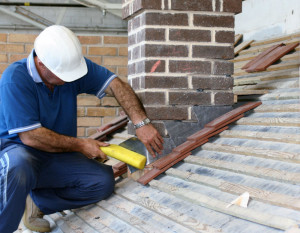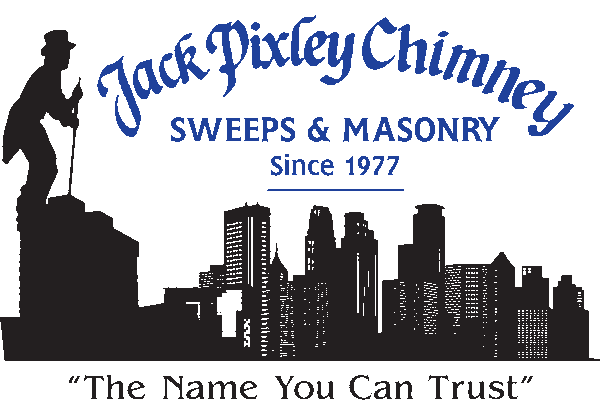While a little water in your fireplace might seem like only a minor inconvenience, it can spell major trouble for your chimney system. Whether it’s a few droplets, a large puddle, or even a musty smell, the presence of water in your fireplace and chimney can cause damage to many different chimney components.
Causes of leaky chimneys
Because chimneys are complex structures with a number of different components, there is no one guaranteed cause of a leaky chimney. However, there are several common ways that water can get in; below are four of the most common causes of chimney leaks.
- Chimney cap: Chimney caps are metal covers that protect the top of the flue and keep animals, debris, and moisture out of the chimney. If a chimney cap is installed incorrectly, does not fit properly, or is damaged, water can easily enter the flue and chimney.
- Chimney crown: The chimney crown is the mortar slab that covers and seals the top of the chimney. Well-built chimney crowns are typically made of concrete or other stone to prevent the chips and cracks associated with long term exposure to the elements. Likewise, a good chimney crown should have overhangs and be slightly sloped in order to prevent water from pooling or draining directly onto the masonry of the chimney.
- Damaged masonry: Damage caused by water can cause bricks to crack and spall; not only does this let additional water into the fireplace system, but it can also affect the structural stability of the chimney structure.

- Flashing: Chimney flashing are the layered metal strips that seal the joint between the roof and the chimney structure. Flashing can lose its watertight seal due to exposure to the elements, incorrect installation, damage from storms, or if changes to the roof line are made.
Repairing a leaky chimney
The first step to fixing a leaky chimney is to identify and repair the underlying cause of the leak. A chimney inspection done by a certified chimney sweep is often the best way to uncover where water is getting into the chimney system; by fixing how the water is getting in first, you can avoid needing the same chimney repairs because of water damage again and again.
In addition to repairing your leaky chimney, preventative maintenance can be done to protect your chimney against water damage. Waterproofing is one of the best ways to protect your masonry against water entry. Our professional-grade SaverSystems sealants are specially designed to work on masonry; these sealants allow the masonry to retain its semi-porous nature, allowing gasses to pass through but preventing moisture from getting in. Water repellent sealants can even be used if your masonry already has areas of water damage!
If you have a leaky chimney, it is important to have it repaired as soon as possible. Contact the experts at Jack Pixley Sweeps today for more information on how we can fix your leaky chimney!
